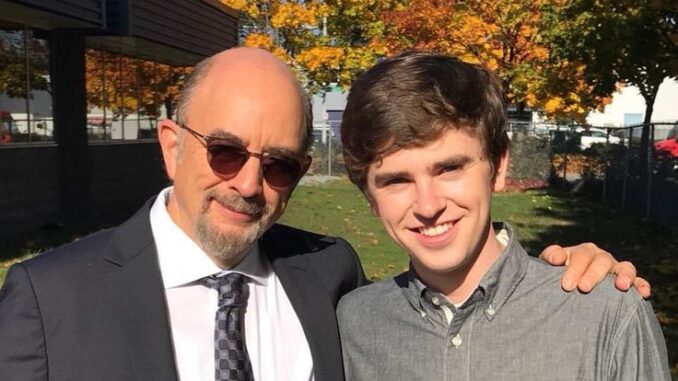
Every great journey begins with someone who dares to believe in you—even when no one else does. For Dr. Shaun Murphy, that someone is Dr. Aaron Glassman.
In The Good Doctor, Shaun’s road to becoming a surgeon is anything but typical. Diagnosed with autism and savant syndrome at a young age, Shaun endured a childhood marked by trauma, misunderstanding, and tragedy. He lost his younger brother in a devastating accident. He was rejected by his parents. He grew up in foster care. Through all of this, there was one person who never gave up on him: Dr. Glassman.
Aaron Glassman is not just a former hospital president or a brilliant physician. In many ways, he is the closest thing Shaun has ever had to a father. Their relationship forms the emotional backbone of the series, offering viewers a powerful exploration of mentorship, chosen family, and what it truly means to support someone through life’s most difficult challenges.
When The Good Doctor begins, we meet Shaun as a surgical resident candidate—and Glassman as the man who has staked his career and reputation on giving Shaun that opportunity. The hospital board is firmly against hiring someone with autism. Their concerns are rooted in outdated beliefs about communication, empathy, and social awareness. Glassman listens patiently. And then he says something quietly revolutionary: Shaun deserves a chance.
Why?
Because he’s brilliant. Because he cares. Because he’s proven, again and again, that his differences don’t make him less capable—they make him extraordinary.
It’s not just professional faith. Glassman’s belief in Shaun is deeply personal. He’s known him since childhood, seen his potential long before anyone else could. When Shaun was just a boy, wandering through grief and confusion, Glassman was there. Not just as a doctor, but as a mentor, a guide, and eventually, a father figure.
But The Good Doctor doesn’t present their bond as easy or perfect. It’s often strained, complicated, and tested. Glassman can be overprotective. He tries to shield Shaun from failure, from pain, from the cruelty of the world. Shaun, fiercely independent, resents being treated like a child. He wants to prove himself—not just to the world, but to the man who once promised to look out for him.
Over the seasons, this tension becomes a central part of their growth. Glassman learns to let go, to allow Shaun the space to make his own decisions—even if that means making mistakes. Shaun, in turn, learns to appreciate Glassman’s love, even when it comes with frustration or tough truths.
Their conversations are some of the most emotionally resonant in the series. Sometimes they’re filled with wisdom and quiet understanding. Sometimes they erupt into shouting matches fueled by years of buried feelings. But no matter how difficult things get, the bond between them holds. Because at its core, it is built on unconditional support.

One of the most moving moments in the show occurs when Glassman is diagnosed with brain cancer. The roles reverse. Shaun, the student, becomes the caregiver. For the first time, he is the one fighting for someone else’s life—not as a surgeon, but as a son.
He researches. He advocates. He refuses to accept defeat. And though Shaun struggles to express it, his every action screams love. Watching him sit quietly by Glassman’s hospital bed, unsure how to comfort but refusing to leave—that is love in its purest form.
The show does not shy away from showing Glassman’s flaws. He is stubborn, proud, and sometimes harsh. But it also shows his depth. He is a man who has sacrificed, who has made mistakes, and who has chosen to love someone not out of obligation—but out of belief.
Glassman never demands that Shaun change. He doesn’t try to make him “normal.” Instead, he encourages him to embrace who he is. He helps Shaun develop the tools to succeed without compromising his identity. He reminds him that his worth is not dependent on how well he masks his autism, but on the impact he has on the world.
And Shaun, in his own way, gives Glassman just as much in return. He challenges him. He brings meaning and purpose to his life. He pushes him to stay curious, to stay engaged, to keep caring even when things seem hopeless.
Their relationship is not built on biology, but on choice. Glassman chooses Shaun. He chooses to fight for him, to show up for him, to call him out when needed, and to stand by him when the world turns away. And in choosing Shaun, he finds a family he didn’t know he needed.
In a television landscape often filled with romantic tension and surface-level drama, the bond between Shaun and Glassman stands out. It is sincere. It is layered. And it speaks to something that resonates with everyone—the longing to be seen, to be supported, and to have someone in your corner when it matters most.
Because sometimes, the greatest love story isn’t a romance. Sometimes it’s a mentor who stands by a young man the world refuses to understand—and gives him the courage to become who he was always meant to be.
